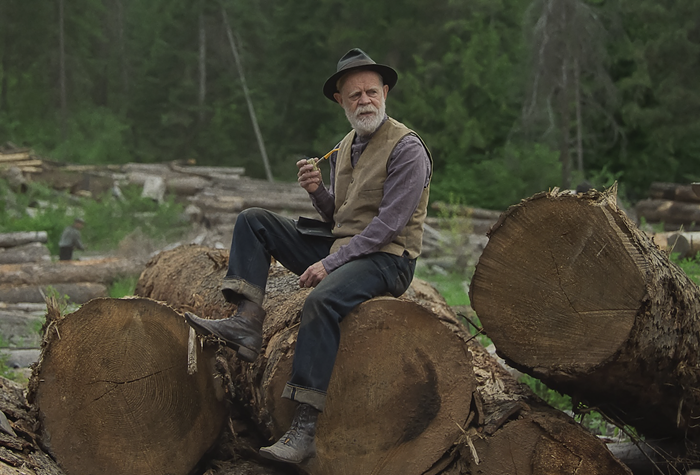
"Train Dreams introduces us to the story of Robert Grainier (Joel Edgerton) by considering his life's footprint on a map. Orphaned early on, he grows up by the Moyie River in Idaho, before finding work in the 1920s as a logger, traveling west to the old growth forests of Washington. He never sees the ocean but comes within 90 miles or so of the coast. He doesn't make it very far eastward, either."
"His life was small. Our narrator-the wizened tone of Will Patton-says as much in the movie's opening moments. Robert didn't cover much ground; he was geographically insignificant and arguably unremarkable. The only thing exceptional about Robert is his quiet. Director Clint Bentley may have given Train Dreams a narrator because Robert is a soul who needs one. Someone's got to sound out his loneliness."
"He courts his one and only love, Gladys, (Felicity Jones, who seems to be playing her character from The Brutalist: a long-distance wife carrying the fire of a better life in her chest) and together they build a cabin and family by the river. But Robert must leave every year to find work. First he's laying rail lines to open up the forests and then he's logging, tramping into eastern Washington for months while his young daughter grows exponentially every time he sees her anew."
Robert Grainier grows up orphaned by the Moyie River in Idaho and finds work in the 1920s as a logger in Washington's old-growth forests. He remains geographically limited and his life is defined by smallness and a pervasive quiet. He courts Gladys and they build a riverside cabin and family, but he must leave annually to labor—laying rail lines and logging—returning to a daughter who seems markedly changed between visits. Industrial forces arrive, and machines and new power sources replace workers, altering the rhythms of labor and eroding traditional ways of life.
Read at Portland Mercury
Unable to calculate read time
Collection
[
|
...
]